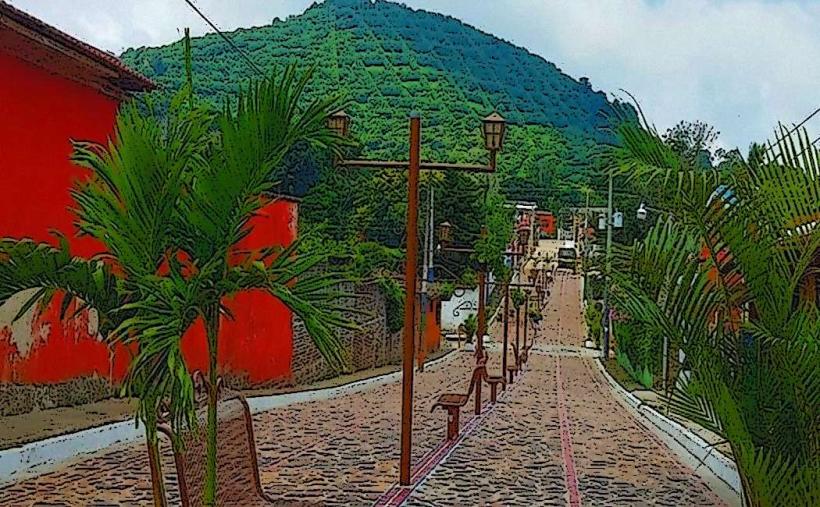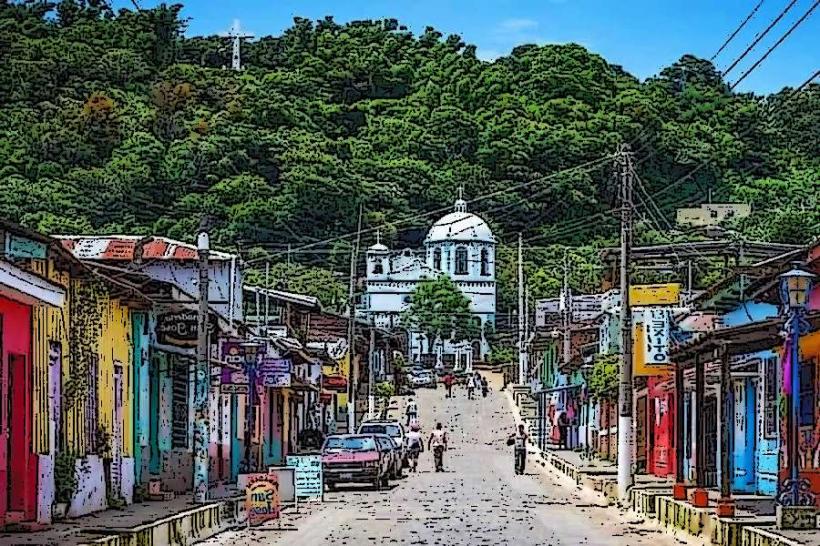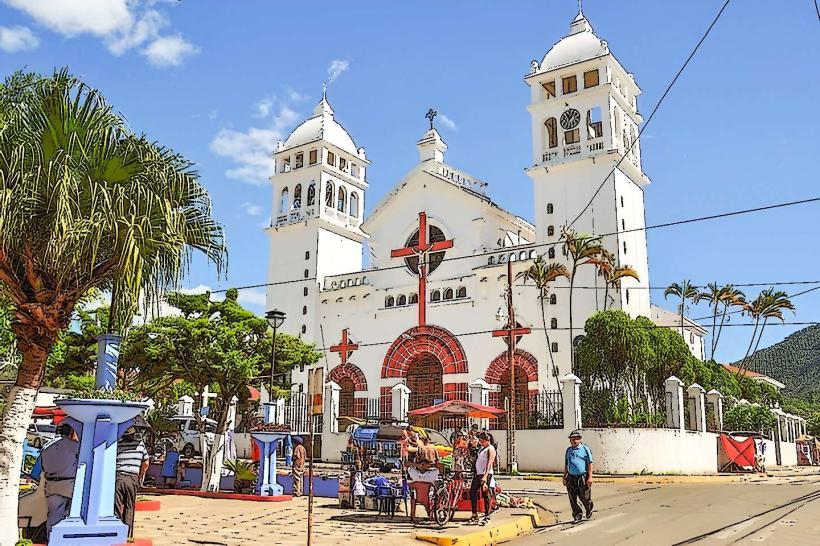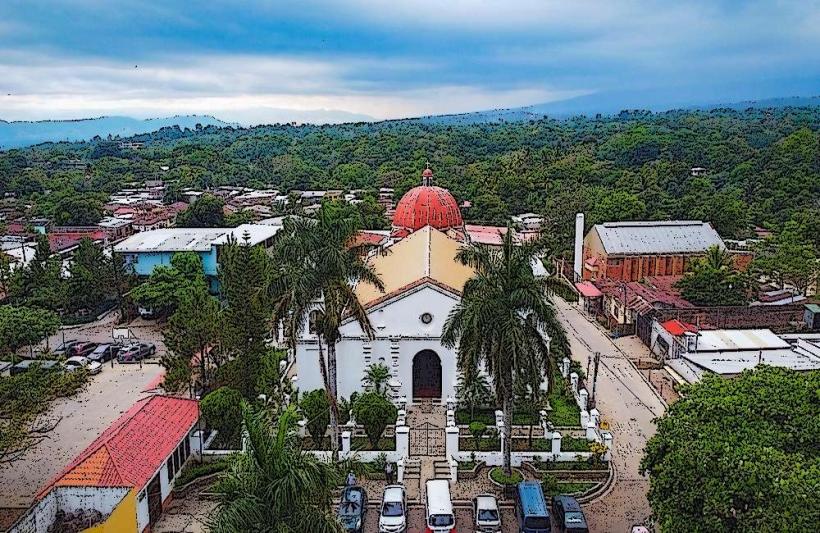Information
City: SonsonateCountry: Grenada
Continent: North America
Sonsonate is a city located in the western part of El Salvador, serving as the capital of the Sonsonate Department. Situated approximately 65 kilometers (40 miles) from San Salvador, the country's capital, Sonsonate is known for its agricultural significance, its colonial history, and its proximity to both the Pacific Coast and the Ahuachapán mountains.
Geography and Climate
Sonsonate is situated in the western part of El Salvador, between the Ahuachapán mountains and the coastal plains. It lies at an elevation of about 250 meters (820 feet) above sea level, making it warmer than the higher-altitude areas of the country. The region enjoys a tropical climate, with a clear distinction between the wet and dry seasons. The wet season spans from May to October, while the dry season lasts from November to April. Temperatures are generally warm year-round, averaging between 25°C and 30°C (77°F to 86°F), with some cooler evenings in the dry season.
History and Culture
Sonsonate has a rich history that dates back to pre-Columbian times, as it was once inhabited by Lenca indigenous people before the arrival of the Spanish. The town was founded in the 16th century, and like many towns in El Salvador, it was influenced by Spanish colonialism. The area was historically known for its agricultural output, especially in crops such as coffee, sugar, and cocoa.
During the colonial era, Sonsonate was an important hub for trade and commerce, and the town grew in significance as El Salvador expanded its agricultural economy. Today, Sonsonate retains elements of its colonial past, with many traditional buildings still standing in the town center.
The town is also known for its cultural heritage, especially its local festivals and traditional crafts. While not as popular as some other Salvadoran cities for tourism, Sonsonate offers a more authentic, less touristy experience of Salvadoran life and culture.
Economy
The economy of Sonsonate is heavily based on agriculture, with coffee production being particularly important to the region's economy. The surrounding mountains are home to many coffee plantations, and Sonsonate is one of the major coffee-producing areas in El Salvador. Other agricultural products grown in the region include maize, beans, and sugarcane.
In addition to agriculture, commerce and industry have contributed to Sonsonate’s economy. The city has various shops, markets, and small-scale industries that serve both local and regional needs. The town's location near the coast also means it benefits from tourism, particularly from those traveling to nearby beach towns like La Libertad and El Tunco, as Sonsonate serves as an entry point to the western coastal region.
Tourism and Attractions
While Sonsonate is not as heavily visited as other Salvadoran cities, it offers a few notable attractions for those interested in local culture and nature. The city’s quieter atmosphere and traditional feel make it an appealing destination for travelers seeking a less commercialized experience. Some attractions and activities include:
Sonsonate's Colonial Architecture: The town’s historical center still retains much of its colonial-era charm. The Iglesia de Sonsonate (Sonsonate Church) is a key architectural site, built in the 18th century and offering a glimpse into the town's colonial past. Many of the buildings around the town center have Spanish influences, making it a pleasant place to stroll and soak in the atmosphere.
Cultural Festivals: Sonsonate hosts various local festivals, particularly the Fiesta de la Cruz in May, which celebrates the region’s religious traditions. The Fiesta de Santa Lucia is another significant event held annually. During these festivals, the town comes alive with traditional dances, music, and food.
Coffe Tour: As one of the main coffee-producing regions in El Salvador, visitors to Sonsonate can take guided tours through local coffee plantations to see how coffee is grown, harvested, and processed. These tours also provide insight into the life of local farmers and the region’s coffee history.
Ruta de Las Flores (Route of the Flowers): While not directly in Sonsonate, the famous Ruta de Las Flores (Route of the Flowers) is nearby. This scenic route passes through several towns, including Juayúa, Apaneca, and Ataco, all of which are known for their charming streets, local markets, and coffee plantations. Travelers often use Sonsonate as a starting point to explore the Ruta de Las Flores, which offers hiking, waterfalls, and beautiful mountain views.
La Laguna de Las Ninfas: Located just outside of Sonsonate, this serene lake is an ideal spot for relaxation and nature walks. The area is surrounded by forest, making it perfect for birdwatching and picnics.
Nearby Beaches: Sonsonate's location makes it convenient for visitors to head to nearby beaches such as Costa del Sol, El Zonte, and El Tunco. These beaches are known for their great surf and relaxed atmosphere, offering visitors the chance to experience El Salvador's vibrant beach culture.
Parque Nacional El Imposible: A short drive from Sonsonate, El Imposible National Park is one of the most biodiverse areas in El Salvador. The park features dense forests, rugged mountains, and a variety of wildlife, making it a great destination for hikers and nature lovers. It’s also an excellent spot for birdwatching, as it is home to many native and migratory bird species.
Transportation
Sonsonate is easily accessible from San Salvador by road, with Route 2 and Route 1 being the primary highways connecting the two cities. The drive takes around 1.5 to 2 hours, depending on traffic conditions. Public transportation, such as buses, connects Sonsonate to other major cities in El Salvador.
The town is also within reach of La Libertad, where visitors can continue to the coast and visit popular beaches. Sonsonate’s central location makes it a good base for exploring both the western highlands and the Pacific coast.
Safety and Security
Sonsonate is generally considered a safe destination for visitors, with most of the tourism concentrated around the town center and major attractions. However, like any urban area, it's recommended to take basic precautions, particularly at night or in less populated areas. The small town atmosphere contributes to a sense of security, and the locals are known for being friendly and welcoming.
Conclusion
Sonsonate offers visitors a blend of colonial history, local culture, and natural beauty, making it an ideal destination for those looking to explore a quieter, more traditional side of El Salvador. Its proximity to the beach towns of the Pacific coast and its role as a gateway to the western mountains and the Ruta de Las Flores make Sonsonate an excellent base for travelers interested in exploring the diverse landscapes of El Salvador. Whether you're interested in coffee tours, cultural experiences, or hiking in national parks, Sonsonate has much to offer for those who venture off the beaten path.





